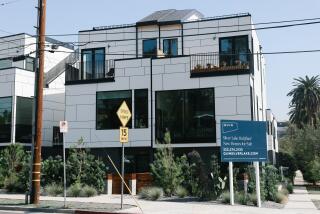Mortgage rates rise above 3% for the first time since July
Mortgage rates rose above 3% for the first time in seven months, raising concerns that higher borrowing costs will derail the pandemic housing rally.
The average rate for a 30-year, fixed-rate loan was 3.02%, up from 2.97% last week and the highest since July 9, Freddie Mac data showed Thursday. Rates have surged from a record low of 2.65% in early January.
The rapid rise could threaten a real estate boom that has been built on historically low mortgage rates over the last year. Borrowing costs plunged in 2020, increasing buying power for Americans looking for larger properties in the suburbs.
“The impact on purchase demand has been noticeable,” Sam Khater, chief economist at Freddie Mac, said in a statement. “While purchase activity remains high, it has cooled off over the last few weeks and is currently on par with early March [2020], prior to the pandemic.”
Even with the recent surge, rates remain low by historical standards. At this time last year, rates fell to 3.29%, the first of 17 record lows during the pandemic.
Still, with few available homes to buy, prices have surged along with borrowing costs, potentially keeping buyers out of the market.
Low rates have also boosted the mortgage industry, which posted record profits as a flood of Americans rushed to refinance. With the rollout of vaccines raising optimism about an economic recovery, rates are climbing amid higher yields on the 10-year Treasuries that guide mortgage costs.
As it stands, only 49% of borrowers could save at least 50 basis points by refinancing, down from 73% at the end of January, according to a Feb. 26 study of conventional loans by Scott Buchta, head of fixed income strategy at Brean Capital.
“We’re at a major inflection point in the mortgage markets,” Buchta said. “The market finds itself in a rising rate environment with a great number of borrowers already having refinanced their loans.”
More to Read
Inside the business of entertainment
The Wide Shot brings you news, analysis and insights on everything from streaming wars to production — and what it all means for the future.
You may occasionally receive promotional content from the Los Angeles Times.










